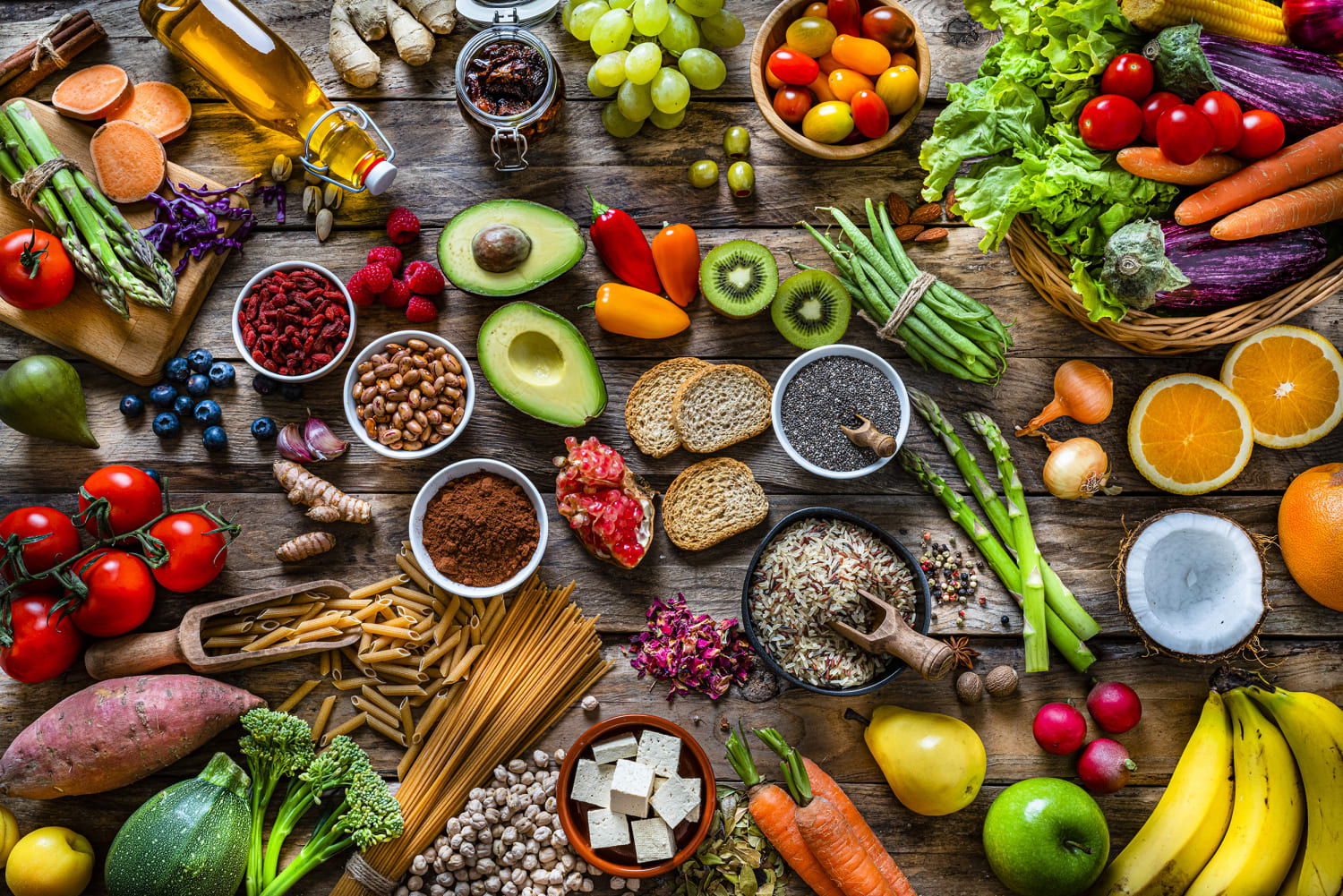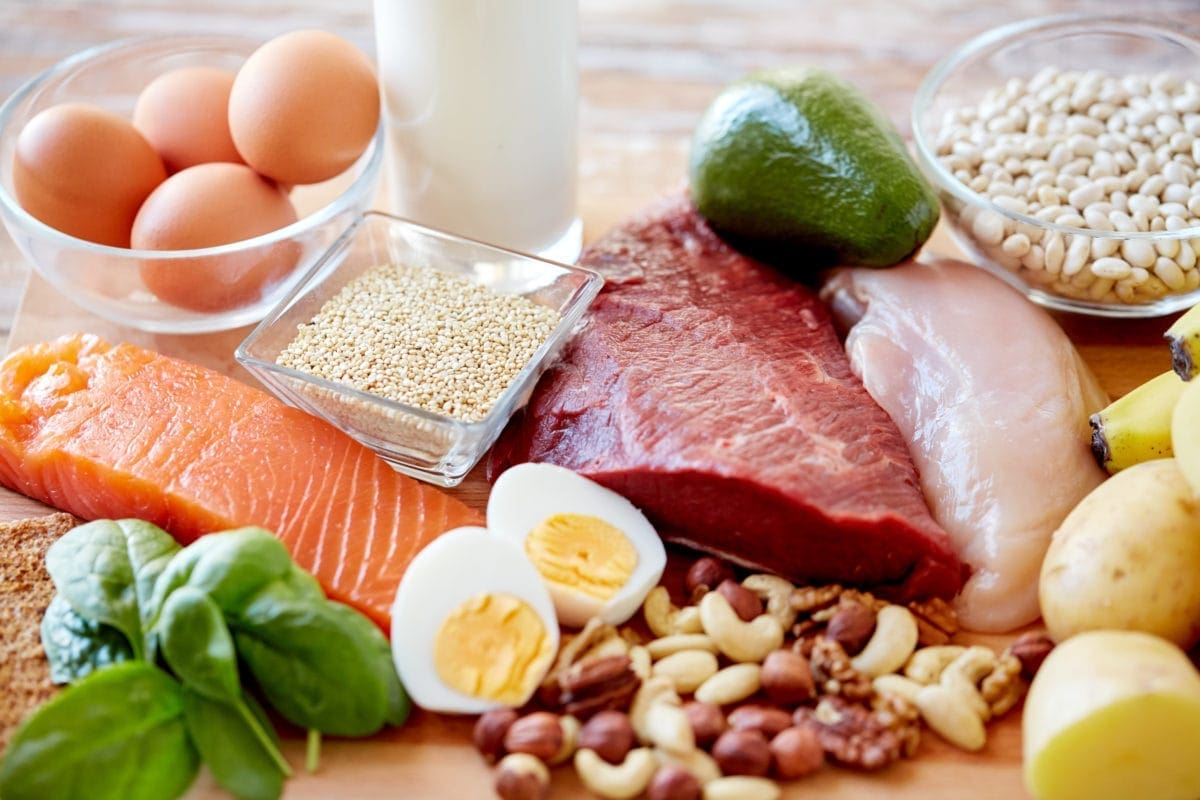Top 10 Best Agriculture Companies in Europe 2023
Top 10 Best Agriculture Companies in Europe 2023

Agriculture is a vital sector of the Top European economy, providing food and employment for millions of people across the continent. In recent years, there has been a growing demand for sustainable and eco-friendly agriculture practices, and a number of innovative companies have emerged to meet this demand.
Agriculture is a crucial sector of the global economy, providing food, fiber, and employment for billions of people around the world. Agriculture also plays a critical role in addressing some of the world’s biggest challenges, such as climate change, biodiversity loss, and poverty.
One of the biggest challenges facing agriculture is how to feed a growing global population without further damaging the environment. Agriculture is a major contributor to greenhouse gas emissions, water pollution, and deforestation, and many agricultural practices are unsustainable in the long term. To address this challenge, there is a growing movement towards sustainable agriculture practices that prioritize the health of the environment and the well-being of farmers and local communities.
Sustainable agriculture practices include organic farming, conservation tillage, agroforestry, and integrated pest management (IPM). These practices prioritize soil health, water conservation, and biodiversity, while also improving crop yields and reducing the use of harmful pesticides and fertilizers. Sustainable agriculture also includes the use of precision agriculture technologies, such as GPS and drones, to optimize crop management and reduce waste.
Another key challenge facing agriculture is the need to adapt to changing weather patterns and other environmental stresses. Climate change is leading to more frequent and severe droughts, floods, and extreme weather events, which can have a major impact on crop yields and food security. To address this challenge, agricultural companies and researchers are developing new crop varieties that are more resilient to changing weather patterns and other environmental stresses.
In addition to these challenges, there is also a need to promote equitable and sustainable development in rural areas, where the majority of the world’s farmers live. This includes improving access to markets, finance, and technology, as well as addressing gender inequality and promoting the rights of indigenous people and local communities.
Overall, sustainable agriculture is essential for meeting the food needs of a growing global population while also protecting the environment and promoting equitable development. By investing in sustainable agriculture practices and supporting the development of new technologies and crop varieties, we can help to ensure that agriculture remains a vital and sustainable sector for generations to come.
In this article, we will take a look at the top 10 best agriculture companies in Europe.
Bayer
Bayer is a German-based agricultural company that produces a range of crop protection products, seeds, and other agricultural products. The company is committed to sustainable agriculture and is constantly developing new technologies and products to improve crop yields and reduce the environmental impact of agriculture. Bayer is also at the forefront of developing sustainable agriculture practices, such as integrated pest management (IPM) and precision agriculture.

Bayer is a German-based agricultural company that produces a range of crop protection products, seeds, and other agricultural products. The company is committed to sustainable agriculture and is constantly developing new technologies and products to improve crop yields and reduce the environmental impact of agriculture.
Bayer’s agricultural products are designed to protect crops from pests, diseases, and other harmful agents, while also improving yields and quality. The company’s portfolio includes a range of herbicides, fungicides, and insecticides, as well as seed treatments and other agricultural chemicals. Bayer’s herbicides, for example, are designed to control weeds and prevent them from competing with crops for nutrients and water, while their fungicides and insecticides protect crops from diseases and pests.
Bayer is also at the forefront of developing sustainable agriculture practices, such as integrated pest management (IPM) and precision agriculture. The company’s IPM practices involve the use of a combination of different pest control methods, including biological, chemical, and cultural, to reduce the use of chemical pesticides. Bayer’s precision agriculture technologies, such as digital tools and services, help farmers to optimize their operations and reduce the use of agricultural chemicals.
In addition to its focus on sustainable agriculture, Bayer is committed to responsible business practices. The company has set ambitious targets for reducing its greenhouse gas emissions, water usage, and waste generation, and is working to ensure that its supply chain is free from environmental and social harm. Bayer also supports local communities through a range of initiatives, including education programs and community development projects.
Overall, Bayer is a key player in the agricultural chemicals industry, providing farmers with a range of products and services designed to improve crop yields and reduce the environmental impact of agriculture. The company’s commitment to sustainability and innovation has helped to make it a leading provider of agricultural chemicals in Europe and around the world.
Syngenta
Syngenta is a Swiss-based agricultural company that produces a range of crop protection products and seeds. The company is committed to sustainable agriculture and has set ambitious targets for reducing the environmental impact of its operations. Syngenta is also at the forefront of developing sustainable agriculture practices, such as integrated pest management (IPM) and precision agriculture.
Syngenta is a Swiss-based agricultural company that produces a range of crop protection products and seeds. The company is committed to sustainable agriculture and has set ambitious targets for reducing the environmental impact of its operations.
Syngenta’s crop protection products are designed to protect crops from pests, diseases, and other harmful agents, while also improving yields and quality. The company’s portfolio includes a range of herbicides, fungicides, and insecticides, as well as seed treatments and other agricultural chemicals. Syngenta’s herbicides, for example, are designed to control weeds and prevent them from competing with crops for nutrients and water, while their fungicides and insecticides protect crops from diseases and pests.
Syngenta is also at the forefront of developing sustainable agriculture practices, such as integrated pest management (IPM) and precision agriculture. The company’s IPM practices involve the use of a combination of different pest control methods, including biological, chemical, and cultural, to reduce the use of chemical pesticides. Syngenta’s precision agriculture technologies, such as digital tools and services, help farmers to optimize their operations and reduce the use of agricultural chemicals.
In addition to its focus on sustainable agriculture, Syngenta is committed to responsible business practices. The company has set ambitious targets for reducing its greenhouse gas emissions, water usage, and waste generation, and is working to ensure that its supply chain is free from environmental and social harm. Syngenta also supports local communities through a range of initiatives, including education programs and community development projects.
Overall, Syngenta is a key player in the agricultural chemicals industry, providing farmers with a range of products and services designed to improve crop yields and reduce the environmental impact of agriculture. The company’s commitment to sustainability and innovation has helped to make it a leading provider of agricultural chemicals in Europe and around the world.
BASF
BASF is a German-based agricultural company that produces a range of crop protection products and seeds. The company is committed to sustainable agriculture and has set ambitious targets for reducing the environmental impact of its operations. BASF is also at the forefront of developing sustainable agriculture practices, such as precision agriculture.
BASF is a German-based agricultural company that produces a range of crop protection products and seeds. The company is committed to sustainable agriculture and has set ambitious targets for reducing the environmental impact of its operations.
BASF’s crop protection products are designed to protect crops from pests, diseases, and other harmful agents, while also improving yields and quality. The company’s portfolio includes a range of herbicides, fungicides, and insecticides, as well as seed treatments and other agricultural chemicals. BASF’s herbicides, for example, are designed to control weeds and prevent them from competing with crops for nutrients and water, while their fungicides and insecticides protect crops from diseases and pests.
BASF is also at the forefront of developing sustainable agriculture practices, such as precision agriculture. The company’s precision agriculture technologies, such as digital tools and services, help farmers to optimize their operations and reduce the use of agricultural chemicals. BASF is also developing biotechnology solutions to improve crop yields, such as genetically modified crops that are more resilient to environmental stresses.
In addition to its focus on sustainable agriculture, BASF is committed to responsible business practices. The company has set ambitious targets for reducing its greenhouse gas emissions, water usage, and waste generation, and is working to ensure that its supply chain is free from environmental and social harm. BASF also supports local communities through a range of initiatives, including education programs and community development projects.
Overall, BASF is a key player in the agricultural chemicals industry, providing farmers with a range of products and services designed to improve crop yields and reduce the environmental impact of agriculture. The company’s commitment to sustainability and innovation has helped to make it a leading provider of agricultural chemicals in Europe and around the world.
Yara International
Yara International is a Norwegian-based agricultural company that produces a range of fertilizers, industrial gases, and nitrogen chemicals. The company is committed to sustainable agriculture and has set ambitious targets for reducing the environmental impact of its operations. Yara International is also at the forefront of developing sustainable agriculture practices, such as precision agriculture.
Yara International is a Norwegian-based agricultural company that produces and sells a range of crop nutrition products and solutions. The company is committed to sustainable agriculture and has set ambitious targets for reducing the environmental impact of its operations.
Yara’s crop nutrition products are designed to provide crops with the nutrients they need to grow and thrive, while also improving yields and quality. The company’s portfolio includes a range of fertilizers, micronutrients, and other crop nutrition products, as well as digital tools and services to help farmers optimize their operations and reduce waste.

Yara is also at the forefront of developing sustainable agriculture practices, such as precision agriculture and responsible sourcing. The company’s precision agriculture technologies, such as digital tools and services, help farmers to optimize their operations and reduce the use of fertilizers and other agricultural inputs. Yara’s responsible sourcing initiatives ensure that the raw materials used to produce its crop nutrition products are sourced in a sustainable and ethical manner.
In addition to its focus on sustainable agriculture, Yara is committed to responsible business practices. The company has set ambitious targets for reducing its greenhouse gas emissions, water usage, and waste generation, and is working to ensure that its supply chain is free from environmental and social harm. Yara also supports local communities through a range of initiatives, including education programs and community development projects.
Overall, Yara International is a key player in the crop nutrition industry, providing farmers with a range of products and services designed to improve crop yields and reduce the environmental impact of agriculture. The company’s commitment to sustainability and innovation has helped to make it a leading provider of agricultural products in Europe and around the world.
John Deere
John Deere is an American-based agricultural machinery company that produces a range of tractors, combine harvesters, and other agricultural equipment. The company is committed to sustainable agriculture and has set ambitious targets for reducing the environmental impact of its operations. John Deere is also at the forefront of developing sustainable agriculture practices, such as precision agriculture.
John Deere is an American-based agricultural machinery company that produces a range of equipment for agriculture, forestry, and construction. The company is committed to sustainable agriculture and is constantly developing new technologies and products to improve efficiency and reduce the environmental impact of agriculture.
John Deere’s agricultural machinery is designed to help farmers optimize their operations and improve crop yields. The company’s portfolio includes a range of tractors, combines, and other farm equipment, as well as digital tools and services to help farmers monitor their operations and reduce waste. John Deere’s precision agriculture technologies, such as GPS and drone technology, help farmers to optimize their operations and reduce the use of inputs such as fertilizers and pesticides.
John Deere is also committed to responsible business practices. The company has set ambitious targets for reducing its greenhouse gas emissions, water usage, and waste generation, and is working to ensure that its supply chain is free from environmental and social harm. John Deere also supports local communities through a range of initiatives, including education programs and community development projects.
In addition to its focus on sustainable agriculture, John Deere is also committed to improving the quality of life for farmers and rural communities. The company’s initiatives include education and training programs, as well as support for local infrastructure development and community services.

Overall, John Deere is a key player in the agricultural machinery industry, providing farmers with a range of products and services designed to improve efficiency and reduce the environmental impact of agriculture. The company’s commitment to sustainability and innovation has helped to make it a leading provider of agricultural machinery in Europe and around the world.
CNH Industrial
CNH Industrial is an Italian-based agricultural machinery company that produces a range of tractors, combine harvesters, and other agricultural equipment. The company is committed to sustainable agriculture and has set ambitious targets for reducing the environmental impact of its operations. CNH Industrial is also at the forefront of developing sustainable agriculture practices, such as precision agriculture.

CNH Industrial is an Italian-American industrial company that produces a range of agricultural machinery and equipment, as well as vehicles for construction and transportation. The company is committed to sustainable agriculture and is constantly developing new technologies and products to improve efficiency and reduce the environmental impact of agriculture.
CNH Industrial’s agricultural machinery is designed to help farmers optimize their operations and improve crop yields. The company’s portfolio includes a range of tractors, combines, and other farm equipment, as well as digital tools and services to help farmers monitor their operations and reduce waste. CNH Industrial’s precision agriculture technologies, such as GPS and drone technology, help farmers to optimize their operations and reduce the use of inputs such as fertilizers and pesticides.
CNH Industrial is also committed to responsible business practices. The company has set ambitious targets for reducing its greenhouse gas emissions, water usage, and waste generation, and is working to ensure that its supply chain is free from environmental and social harm. CNH Industrial also supports local communities through a range of initiatives, including education programs and community development projects.
In addition to its focus on sustainable agriculture, CNH Industrial is also committed to improving the quality of life for farmers and rural communities. The company’s initiatives include education and training programs, as well as support for local infrastructure development and community services.
Overall, CNH Industrial is a key player in the agricultural machinery industry, providing farmers with a range of products and services designed to improve efficiency and reduce the environmental impact of agriculture. The company’s commitment to sustainability and innovation has helped to make it a leading provider of agricultural machinery in Europe and around the world.
DeLaval
DeLaval is a Swedish-based agricultural machinery company that produces a range of milking equipment, feeding systems, and other dairy farming equipment. The company is committed to sustainable agriculture and has set ambitious targets for reducing the environmental impact of its operations. DeLaval is also at the forefront of developing sustainable agriculture practices, such as precision feeding and smart barns.
DeLaval is a Swedish-based agricultural machinery company that specializes in producing equipment and services for dairy farmers. The company is committed to sustainable agriculture and is constantly developing new technologies and products to improve efficiency and reduce the environmental impact of dairy farming.
DeLaval’s equipment and services are designed to help dairy farmers optimize their operations and improve milk quality. The company’s portfolio includes a range of milking equipment, cooling systems, and animal welfare solutions, as well as digital tools and services to help farmers monitor their operations and reduce waste. DeLaval’s precision farming technologies, such as robotic milking systems, help farmers to optimize their operations and reduce labor costs.
DeLaval is also committed to responsible business practices. The company has set ambitious targets for reducing its greenhouse gas emissions, water usage, and waste generation, and is working to ensure that its supply chain is free from environmental and social harm. DeLaval also supports local communities through a range of initiatives, including education programs and community development projects.
In addition to its focus on sustainable agriculture, DeLaval is also committed to improving the welfare of dairy cows. The company’s initiatives include research and development projects aimed at improving animal health and welfare, as well as education and training programs for dairy farmers.

Overall, DeLaval is a key player in the dairy farming industry, providing farmers with a range of equipment and services designed to improve efficiency and reduce the environmental impact of dairy farming. The company’s commitment to sustainability and innovation has helped to make it a leading provider of dairy farming solutions in Europe and around the world.
KWS Saat
KWS Saat is a German-based agricultural company that produces a range of seeds, including maize, sugar beet, and cereals. The company is committed to sustainable agriculture and has set ambitious targets for reducing the environmental impact of its operations. KWS Saat is also at the forefront of developing sustainable agriculture practices, such as precision agriculture and biotechnology.
KWS Saat is a German-based agricultural company that specializes in plant breeding and seed production. The company produces a wide range of seeds, including maize, sugar beet, cereals, and other field crops. KWS Saat is committed to sustainable agriculture and is constantly developing new seed varieties that can improve crop yields, reduce the environmental impact of agriculture, and improve the resilience of crops to changing weather patterns.

KWS Saat’s plant breeding programs are focused on developing new seed varieties that are resistant to pests, diseases, and environmental stresses such as drought and heat. The company uses a combination of traditional breeding techniques and advanced biotechnology tools to develop these new varieties. KWS Saat is also committed to sustainable agriculture practices, such as precision agriculture and organic farming, and works closely with farmers to help them adopt these practices.
In addition to its focus on sustainable agriculture, KWS Saat is also committed to responsible business practices. The company has set ambitious targets for reducing its greenhouse gas emissions, water usage, and waste generation, and is working to ensure that its supply chain is free from environmental and social harm. KWS Saat also supports local communities through a range of initiatives, including education programs and community development projects.
Overall, KWS Saat is a key player in the agricultural industry, providing farmers with a range of high-quality seeds that are designed to improve crop yields and reduce the environmental impact of agriculture. The company’s commitment to sustainability and innovation has helped to make it a leading provider of agricultural products in Europe and around the world.
Arla Foods
Arla Foods is a Danish-based agricultural company that produces a range of dairy products, including milk, cheese, and butter. The company is committed to sustainable agriculture and has set ambitious targets for reducing the environmental impact of its operations. Arla Foods is also at the forefront of developing sustainable agriculture practices, such as precision feeding and smart barns.

Nestlé
Nestlé is a Swiss-based food and beverage company that produces a range of dairy products, including milk, cheese, and yogurt. The company is committed to sustainable agriculture and has set ambitious targets for reducing the environmental impact of its operations. Nestlé is also at the forefront of developing sustainable agriculture practices, such as precision agriculture and responsible sourcing.
These 10 companies are leading the way in sustainable agriculture and are committed to developing new technologies and practices to improve crop yields and reduce the environmental impact of agriculture.
They are also focused on responsible sourcing and supporting local communities, ensuring that the benefits of sustainable agriculture are shared widely. As demand for sustainable and eco-friendly agriculture practices continues to grow, these companies are well-positioned to drive innovation and promote sustainable agriculture practices across Europe and around the world.




